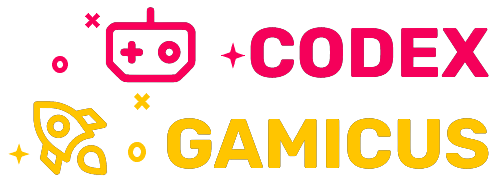Playnormous is an online community of monster-themed games designed to change health behaviors in children and their parents. The games were developed in consultation with health researchers as a way to deliver game-based health interventions to the public at large.
Overview
Playnormous is a website that focuses on teaching kids, ages 6 to 15, and their parents about health by playing casual games, watching animations, and creating a personal monster world. The creators of Playnormous aim to use fun as a modality to educate and inspire families to make healthier lifestyle choices regarding nutrition and physical activity.
The basis for Playnormous is its health game catalog. Playnormous games fall under the category of Games for Health, a genera of serious games. The games and animations are conceptualized, designed, and field-tested with the help of medical researchers at The University of Texas Health Science Center at Houston and Baylor College of Medicine.[1] [2]
History
The Playnormous site was created as a way to deliver successful health intervention programs to the public. The site was created by Playnormous, LLC, an online game developer based in Houston, Texas. Playnormous, LLC is a subsidiary of Archimage, an award-winning visual design studio and Serious Game developer. The Playnormous team is led by President Jerald Reichstein, AIA and Vice President Richard Buday, FAIA. The subsidiary was founded on April 18, 2007 but the site did not go live until May 2008.[3]
Playnormous Health Games
Food Fury was the first health game to be launched on the Playnormous site. Food Fury was originally funded by the Aetna Foundation as part of the “Games for Wellness” project conducted by Dr. Cynthia Phelps, Assistant Professor at The University of Texas Health Science Center.[4] This online game targets 3rd–5th graders to teach and change behavior around food choice and portion control. Food Fury allows children to practice the CATCH[5] method of food selection, known as “Go, Slow, Whoa.”[6] [7] The game has been used in multiple settings including the YMCA’s after school program to change nutrition behaviors in children.[8]
Research-based game development
Playnormous games are created using behavior-change theory as their foundation. Games are designed to change health behaviors by affecting mediators such as skills, confidence, and self-efficacy.[9] This includes:
- Social cognitive theory: modeling healthy behaviors, enhancing skills, increasing confidence. [10]
- Self-determination theory and Theory of Flow: fun experience, immediate feedback in games, and personal expression through monster world and avatar. [11] [12]
- Elaboration likelihood model: gain and maintain person’s attention, immerse player in a fanciful monster world and story-based animations.[13]
- Theory of planned behavior: increase player’s belief that they have the power to change their diet or exercise habits. [14] [15]
Playnormous also uses the research community to field test its games from conception to final product. Kids recruited by the Children’s Nutrition Research Center play game prototypes. Dr. Cynthia Phelps of The University of Texas Health Science Center School of Health Information Sciences leads the beta testing team. The goal of testing every game is to ensure that they are not only educational and understandable but also appealing and fun. [16]
References
- ↑ Houston Business Journal. Houston team rolls dice in health games industry, May 23, 2008
- ↑ HealthLeader Magazine, Playnormous!
- ↑ Houston Business Journal, Traditional gaming companies ready to play games with health, December 2008
- ↑ Aetna Foundation 2006 Grant Listing
- ↑ CATCH
- ↑ CATCH at The University of Texas Health Science Center School of Public Health
- ↑ UTHSC News, Aetna Foundation supports Games for Wellness to address childhood obesity. Feb 2007
- ↑ Phelps, Cynthia L. PhD; Shegog, Ross PhD; Reichstein, Jerald; Frazior, McKee; Wilsdon, Jon; Kim, Yeon Jung; Willcockson, Irmgard PhD; Evans, Alexandria PhD, MPH; Perez, Adriana PhD, MPH; and Hoelscher, Deanna PhD, RD, LD, CNS, "Food Fury: Online Casual Game Development for Nutrition Education" (2007). Advances in Teaching and Learning Day Abstracts, Paper 64.
- ↑ Baranowski T, Buday R, Thompson D, Baranowski J. (2008) Playing for Real: Video games and stories for health-related behavior change. American Journal of Preventative Medicine, 34, 1, 74–82.
- ↑ Bandura, A. (1989). Human Agency in Social Cognitive Theory. American Psychologist, 44, 1175–1184
- ↑ Deci E and Ryan R. (1985) Intrinsic Motivation and Self-Determination in Human Behavior.
- ↑ Csikszentmihalyi, Mihaly (1988) Optimal Experience Psychological Studies of Flow in Consciousness. Cambridge, NY: Cambridge University Press.
- ↑ Petty, R. E., & Cacioppo, J. T. (1986). Communication and Persuasion: Central and Peripheral Routes to Attitude Change. New York: Springer-Verlag.
- ↑ Ajzen I (1985). From intentions to actions: A theory of planned behavior. In J Kuhl & J Beckmann (Eds.), Action control: From cognition to behavior. Berlin, Heidelber, New York: Springer-Verlag.
- ↑ Ajzen I & Fishbein M (2005). The influence of attitudes on behavior. In Albarracin D, Johnson BT, Zanna MP (Eds.), The handbook of attitudes, Lawrence Erlbaum Associates.
- ↑ CATCH eKids Club: Creating Healthier Kids With An Online Game Environment, Changemakers
